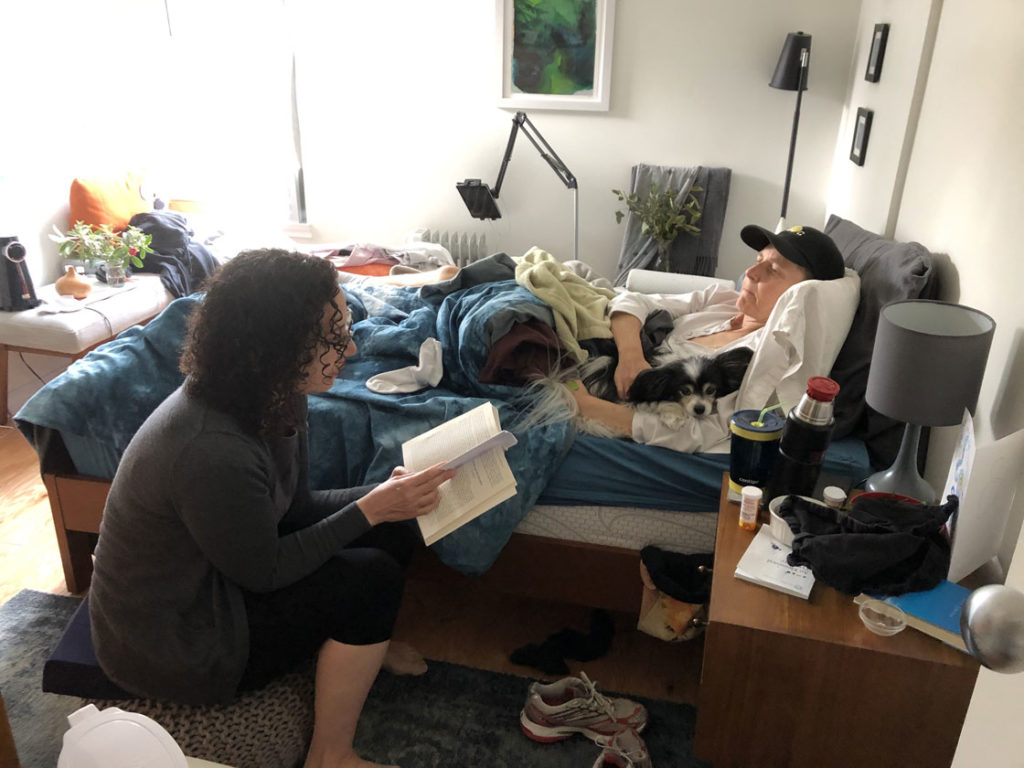This is an excerpt from “Permission to Believe,” by Marc Gellman, in Jewish Insights on Death and Mourning, ed Jack Riemer.
I read this quote to D repeatedly in the days before she died, and twice on the day she died, the second time in the moments before she lost consciousness. This book helped us both immensely. In particular, this chapter and the introduction, in which the editor discusses the ways in which he believes Jewish approaches to death and mourning could improve the way in which Western culture in general deals with death. We particularly loved the Jewish concept of death being a time when a person is gathered into their people. In D’s case, she thought about her people as queers, and took comfort in the idea of becoming part of a whole lineage of queer ancestors. I have bolded the parts that we would repeat over and over to comfort us both.
Gellman starts by describing how when he began his work as a rabbi, he believed what a teacher of his had taught him, that after death is nothingness, and how on his first day as a rabbi he met with a grieving man and told him this. The man was devastated and Gellman deeply regrets this interaction.
Since that day I have grown older, grayer, heavier, and wiser. I found the courage to speak the words of faith and hope that my parents and God had placed within me from my childhood. Since that day I have seen thousands cope with death or be defeated by death, and from each of them I have learned. I have learned that there is something – not nothing – out there waiting for us, something wonderful and loving and peaceful and joyous. I have learned this by watching hundreds of people die. I am a good watcher, and what I have seen is this: people who believe in the olam habah [world-to-come] (even if they have never heard the phrase or studied the texts that teach it) die with infinitely greater serenity and peacefulness than people who do not believe in the world-to-come…
… You don’t have to believe in out-of-body, near-death experiences of tunnels and bright lights to learn that there is something after death. You just have to watch people die… I have watched people die, and I know for certain that the ones who die… with serenity and grace, with hopefulness and quietude, cannot be wrong…
… I have watched and learned from dying people. Their wisdom has given me the wisdom and courage to offer sincere spiritual counsel to hundreds of frightened people that their loved one is all right, that [their] soul is resting peacefully in the world-to-come, and that in time they will be reunited… I know these words bring solace, but I would not say them and I did not say them until I knew them to be true…
… Any comfort I have ever been able to bring to the hearts of the sorrowing is driven and sustained by my faith in the olam habah, which is essential and true, mysterious and wonderful, gentle and sure, challenging and comforting.
